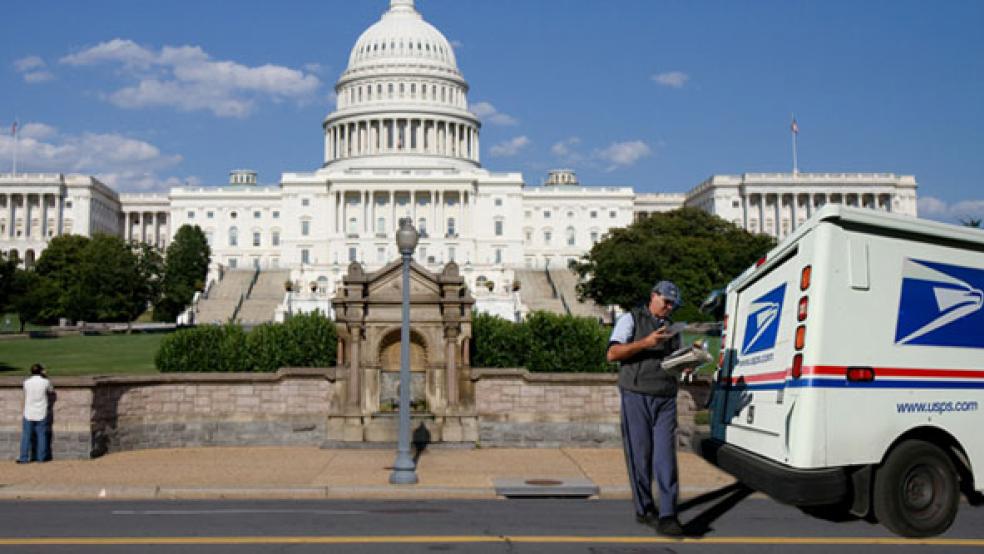With the U.S. Postal Service on the brink of hanging a "going out of business" sign on America's post offices, Postmaster General Patrick Donahoe warned lawmakers on Tuesday that ‘radical’ changes are needed or it will become insolvent.
“The Postal Service is in a crisis today because it operates within a restrictive business model and has limited flexibility to respond to a changing marketplace,” Donahoe said before a Senate hearing. “We need the ability to operate more as a business does. This applies to the way we provide products and services, allocate resources, configure our retail, delivery and mail processing networks and manage our workforce.”
The Postal Service will default on a $5.5 billion payment to pre-fund retiree health benefits by September 30. On top of that, the agency has to reimburse the Department of Labor $1.3 billion for workers’ compensation payments in October.
Even though the USPS has proposed closing 3,700 post offices over the next year, the agency still faces as much as a $10 billion deficit this year, its second consecutive year hemorrhaging greater than $8 billion, Donahoe said. Mounting losses could reach an estimated $16 billion by 2015 and exceed $20 billion by 2020. Donahoe wants to cut 120,000 jobs and ditch Saturday delivery, which he says will save $3 billion each year. But the postal union has a no-layoff clause that ties management's hands.
The Postal Service is not seeking federal funds but rather urgent legislation, to allow the agency to move forward on some of its bold proposals. If no congressional action is taken, by August or September of next year USPS could run out of funds to pay contractors and salaries, Donohoe said.
Donahoe testified before the Senate Homeland Security and Governmental Affairs Committee, chaired by Sen. Joe Lieberman, I-Conn, who said Congress needs to act quickly. “The Postal Service is not an 18th century relic, it is a 21st century national asset, but times are changing rapidly now and so too must the post office," Lieberman said.
The mailing industry, with the Postal Service at its core, generates over $1 trillion a year and employs over 8 million people, Republican Sen. Susan Collins of Maine noted. The combination of the economic downturn, the rise in the use of email, and advertising loss has resulted in a 22 percent decline in mail volume. The USPS has already reduced costs by $12 billion and eliminated some 110,000 employees through attrition over the last four years. In order to return to profitability, the agency needs to reduce its workforce by approximately 220,000 by 2015.
The Postal Service also wants to restructure its extremely generous healthcare benefits to make it independent of federal programs. The agency also claims that the Federal Employees Retirement System received an overpayment of approximately $6.9 billion, and wants that money returned.
The National League of Postmasters said the USPS’ proposal to withdraw from the Federal Health Benefit Plan is a “terrible” idea and “should not be taken seriously.”
The Postal Service is overseen by Congress but does not receive tax dollars for operating expenses. It relies on the sale of postage, products and services to fund its operations.




